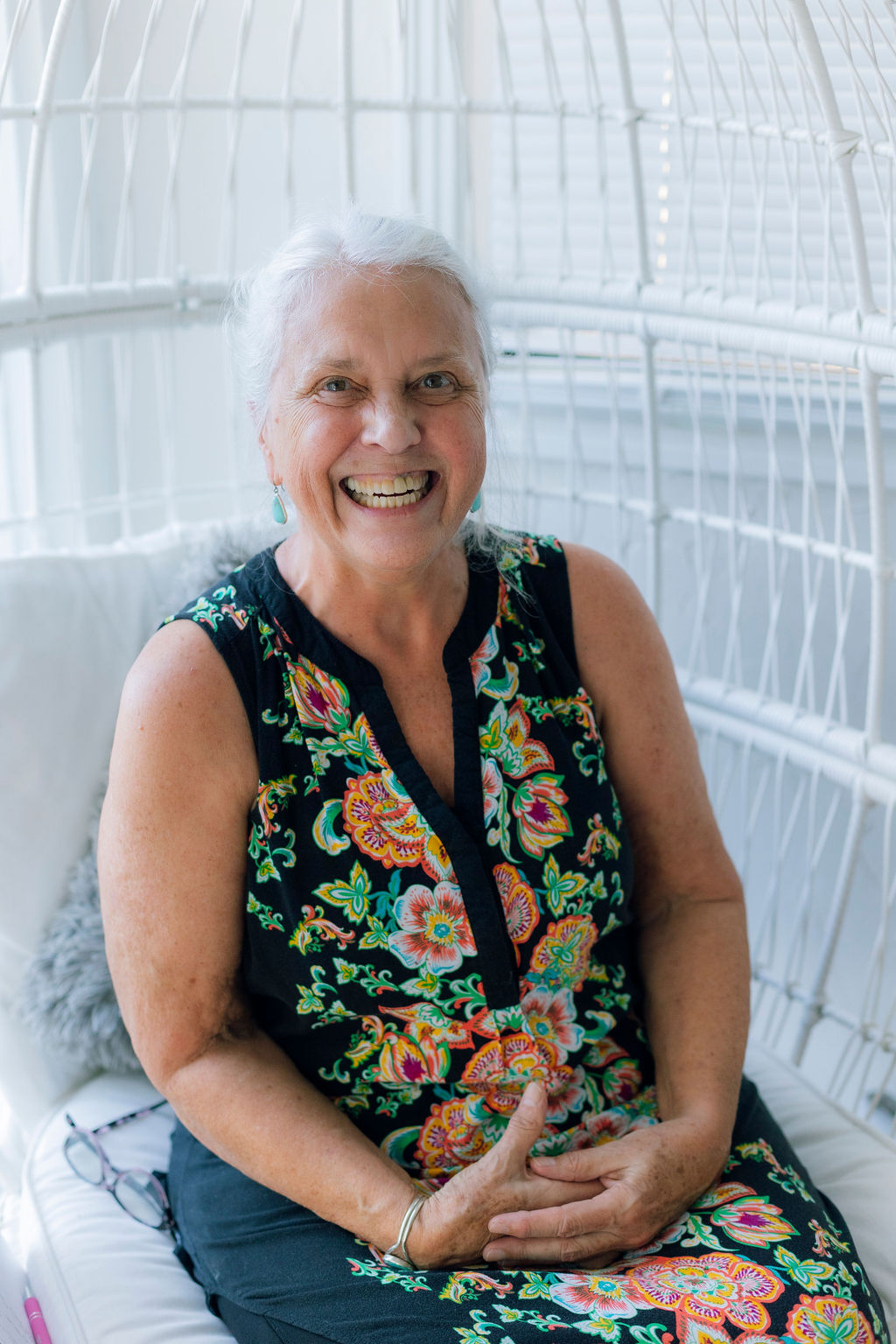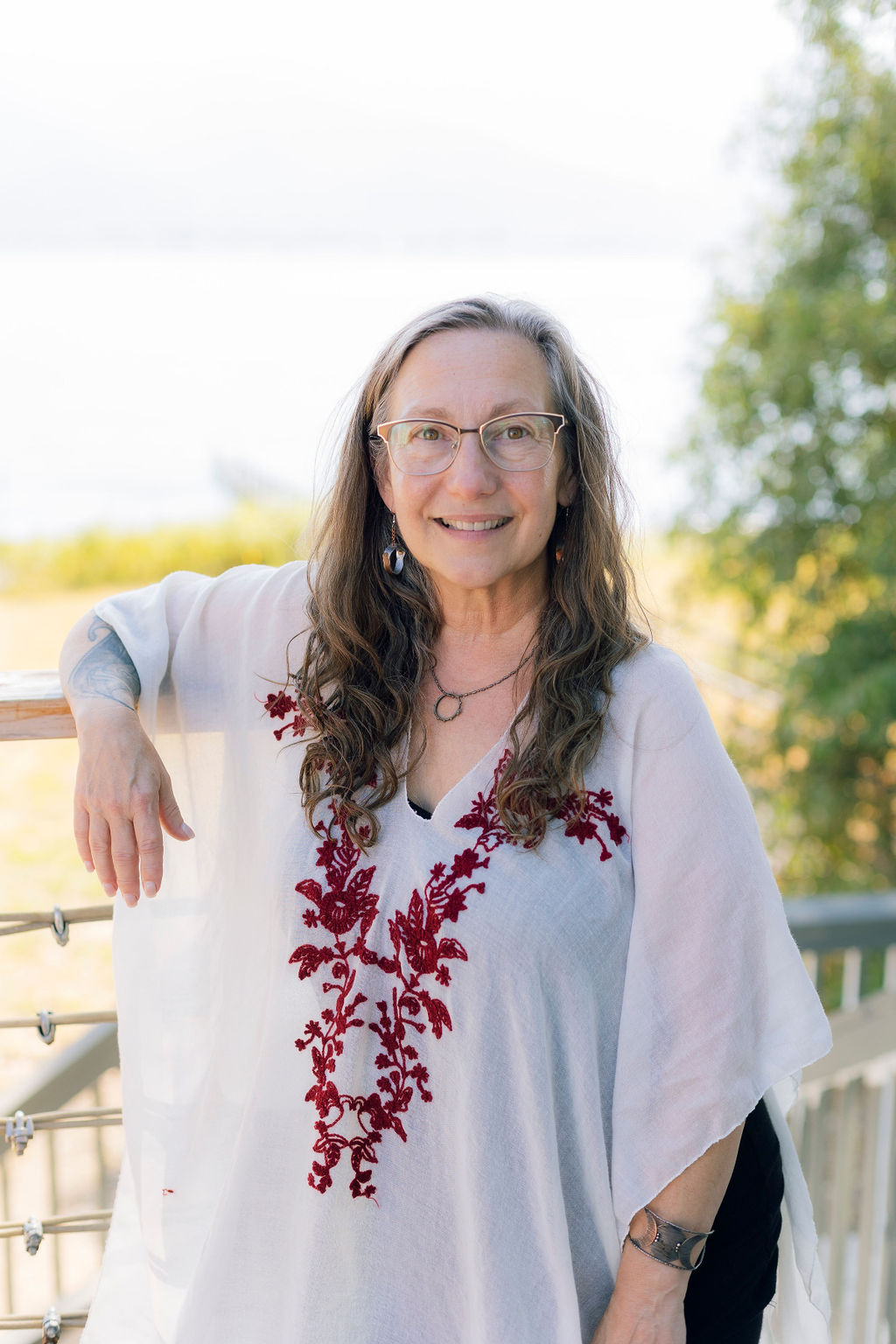The Foundational Concepts Collective
Foundational Concepts Collective is an online community for those interested in exploring a deeper understanding of reproduction as a holistic and intertwined process. Created in response to requests from midwives and birth workers looking for mentors, peers, and an immersive experience without leaving their homes and communities.
Our journey together will last a full year and will include three events per month, featuring educational topics, case reviews, and fireside chats. There will be opportunities for personal development through both individual and team projects. And, of course, there will be plenty of storytelling.
Bring your curiosity and commitment. Be ready to: learn together, ask hard questions, be vulnerable and authentic, and grow towards your best self.
Enrollment is limited to enhance participation and engagement. A waiting list will be created for the next Collective community offering.
Before beginning our work together, we’ll meet by Zoom to answer any final questions and lay the groundwork for our year as a Collective. There will be homework!
ONE YEAR ONLINE PROGRAM WITH 3 MONTHLY EVENTS
PRIVATE COMMUNITY
LIMITED PARTICIPANTS
HIGH TOUCH CONTAINER FOR YOUR EXPANSION
Monthly topics!
Once a month, we will all come together for a presentation centered on the foundational concepts of midwifery. Each meeting time will be focused on a specific topic—ranging from clinical knowledge to traditional practices and community care—designed to deepen our shared understanding and commitment to families and ourselves. After the presentation, we open the floor for questions and discussion, creating space for collective learning, reflection, and connection.
All videos will be recorded and made available only to this cohort for the duration of our year together
Month 1: Our time together begins with a session that is aimed at remembering who we are as humans focusing on the effects of survival instincts on our lives today. How our hormone cycles flow through our lifespan, influencing our thinking and behavior will be thoroughly discussed. Shifting power dynamics to create healthier relationships and communities will set the stage for understanding the foundational concepts of sovereignty.
Month 2: We know that the best way to take care of the baby is to take care of the mother. We’ll take a deep dive into the key ingredients for vitality, how to implement each one in an individual and holistic way, beginning with the first prenatal visit and continuing throughout the pregnancy, labor, birth, and postpartum.
Month 3: What is our work prenatally? We’ll walk through the routine tests that are available – why, when, and why not to use them. What do the results mean? Is it Gestational DM? What do we do about that? Is it preeclampsia or HELLP? Can we prevent it? What about preterm birth?
Month 4: Herbs and homeopathic remedies are traditional tools. What are the basics of identifying, harvesting, and preparing common herbs used in pregnancy and childbirth? The basics of making and using infusions, poultices, tinctures, oils, and salves. How and why does homeopathy work? What do you need to know to carry and use basic remedies in your birth bag?
Month 5: What is labor and how do we avoid maternal exhaustion? How do the uterus and brain communicate to keep birth safe? How does the baby participate in the dance? We’ll go deeper into the normal physiology of birth to understand why it works the way it does, recognizing it as a “manifestation of the spirit through a physical act”. And, of course, we’ll talk about placentas.
Month 6: Transitioning from pregnancy to postpartum – the importance of the golden hour for bonding, lactation and long-term health. What to expect as the uterus returns to the pelvis and how to support optimal healing. Recognizing the wisdom of the newborn, following its lead, and learning its language. What is normal and what isn’t?
Month 7: A review of the cardiac and pulmonary transition a newborn experiences as it becomes an air breather will take us deeper into understanding what the newborn’s priorities are and how we can best support them. When do we intervene and why? What happens when resuscitation doesn’t work? What does neonatal transport look like?
Month 8: How about those breeches? What do they feel like to the mother? To our hands? We’ll look at normal vaginal breech physiology and ways to help when needed. And what about twins? What are the different combinations? What is important? How do we prepare to help with those births? How do we support recovery?
Month 9: Given the high rate of people who experience at least one surgical birth in our population, combined often with a lack of institutional support for VBAC, the choice of VBAC at home becomes a natural outcome. We will talk about how to prepare for success prenatally; what to think about; warning signs; and creating empowering cesareans when they become the option.
Month 10: A review of the fetal skull and how it can fit into and through the maternal pelvis will help us as we look at variations of this process, including posterior, asynclitic, and face presentations. How can we recognize these? How do we support them? We’ll take a deep breath and accept the reality that true emergencies can happen, often unpredictably. We’ll leave with an essential understanding of how to recognize and respond to two time-sensitive emergencies – shoulder dystocia and umbilical cord prolapse.
Month 11: Postpartum bleeding…how much is too much? How can we prevent hemorrhage? Can we predict it? This session will give us a clear path to determining the cause of postpartum hemorrhage to make our tools for stopping it more useful and efficient. How do we support postpartum recovery after a hemorrhage? When is maternal transport appropriate and what does that look like?
Month 12: With a focus on understanding pelvic anatomy, we’ll look at how to improve our ability to assess perineal and labial lacerations. What needs repaired? We’ll talk about the various ways to repair those lacerations, including the basics of suturing and seaweed repair. What about the ones that don’t get repaired? The importance of supporting healing with an aim towards minimizing pelvic weakness in future pregnancies and in older age will be priorities.
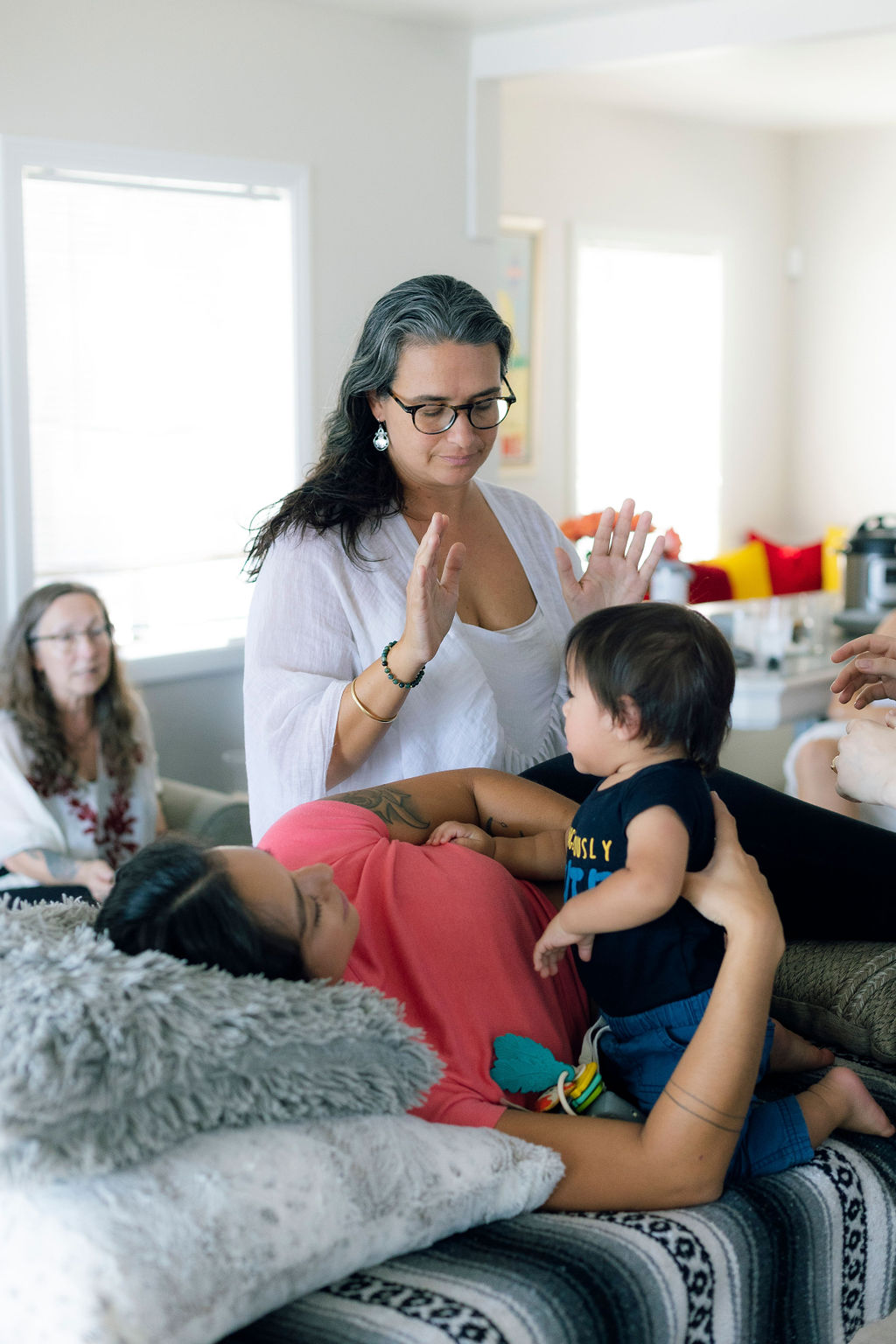
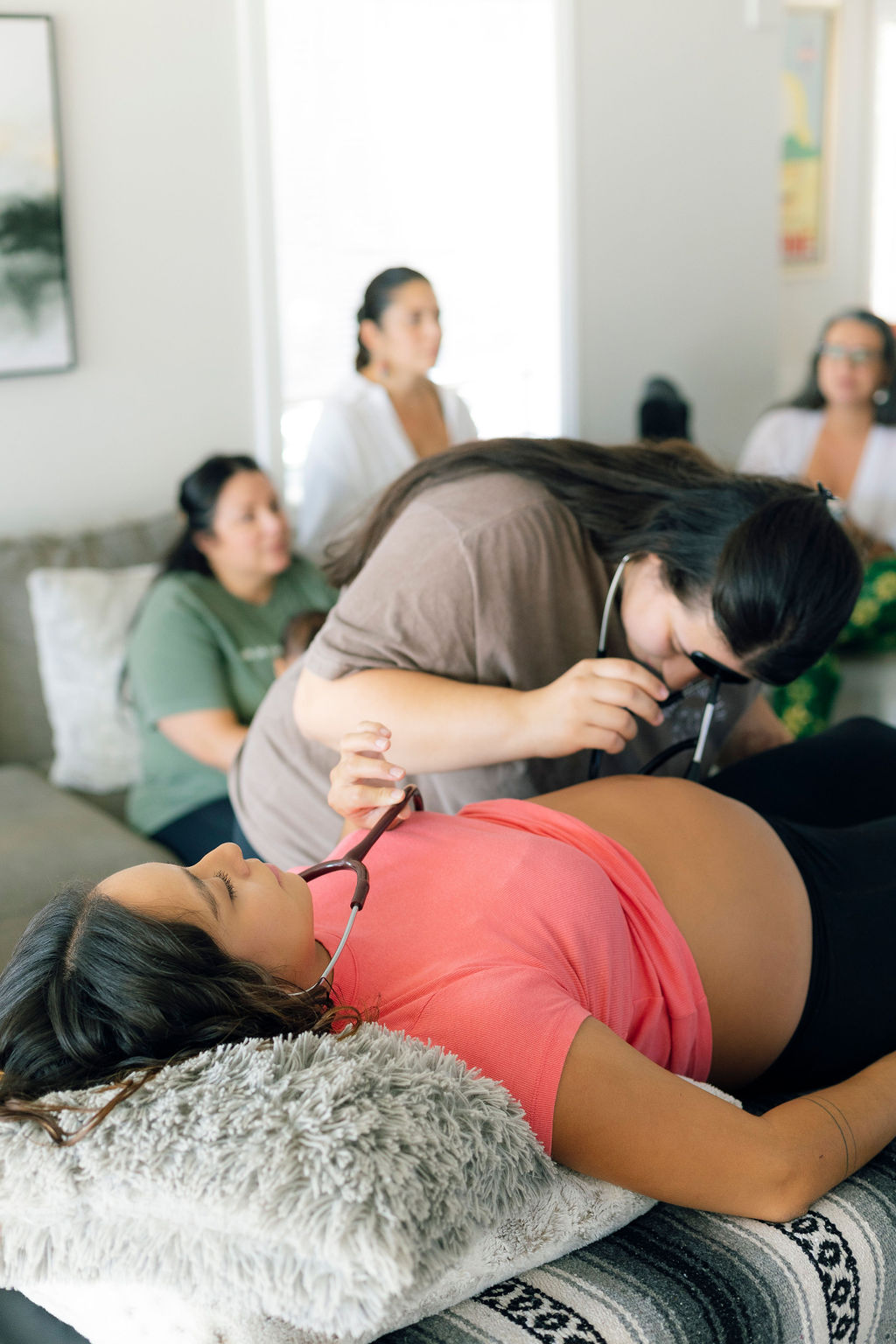
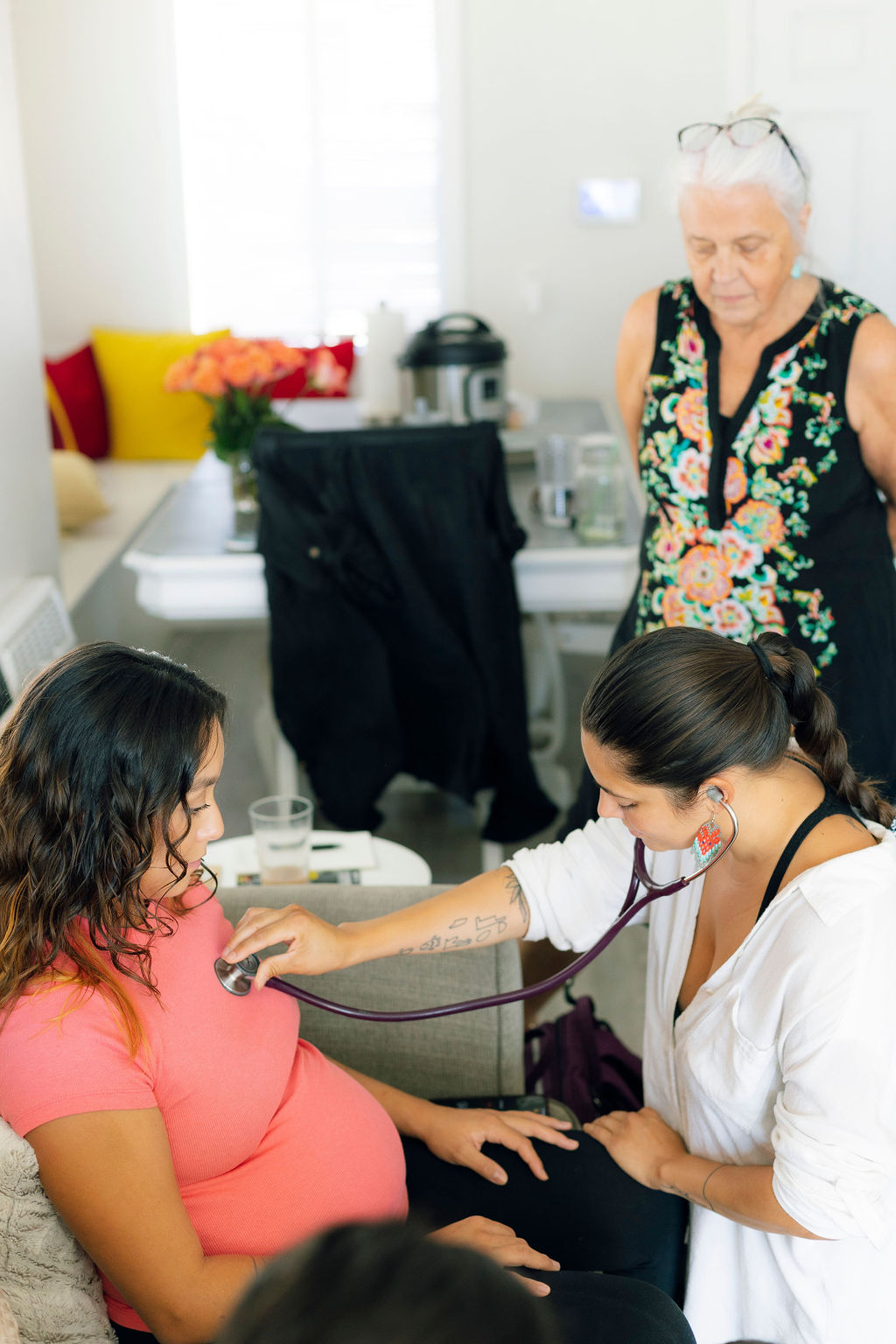
Case Reviews!
the second of our three monthly events
Being 100% present is an essential midwifery skill. While we do plenty of tangible skills, what makes us (FC4MWs) different is our emphasis on intangible skills as just, maybe more, as important. Awareness and authenticity, just to name a couple.
Fireside Chats!
the third of our three monthly events
These gatherings usually happen around a firepit in someone’s backyard—but since we’re meeting virtually, we aim to bring that same intimacy and safety into this space. During all discussion times and educational videos, full participation is expected: cameras on, no multitasking, and earbuds or headphones in to respect the privacy of the presenter and anyone else sharing. This level of presence and care mirrors what we would expect if we were sitting together in person.
Fireside Chats are often an extension of the month’s discussions or centered around current topics in the birth and midwifery world. Topics may include things like: setting and maintaining boundaries around money, time, and oversight—along with the consequences when those boundaries are not upheld, and practical ways to implement them. We may explore what autonomy looks like in today’s landscape, how to support families through the full spectrum of reproductive rights, recognizing trauma in yourself or others, and knowing when outside support is needed. We’ll also cover topics like navigating grief and loss—both in your own practice and in the wider community—and how to build and sustain your support systems. Other conversations might include preparing for challenges like investigations, lawsuits, or community conflict, and how to respond in ways that are grounded, responsible, and trustworthy as a member of a care team.
All videos will be recorded and made available only to this cohort for the duration of our year together
Month 1: Our first fireside chat we will discuss our core values as well as the values of our team members. How to differentiate between core values and personality traits. How do we build communities that share our core values?
Month 2: Continuing with our topic this month, we will discuss how implementing the Sacred Seven in our own lives is essential and often difficult. We’ll sit by the fire and talk about ways to care for ourselves as well as we care for others.
Month 3: What does autonomy truly look like in today’s world? How do we protect ours and our client’s simultaneously? Since the term ‘informed choice’ has been co-opted by the more obstetrical midwifery community, can we still find ways to honor its true meaning? This fire may rage large, bring calming tea…or fuel.
Month 4: We will come fireside and discuss how to support families in their reproductive choices. What risks are involved for the client and the team? Our discussion will include our feelings around carrying this yoke, or not.
Month 5: Our fireside chat this month will take us into understanding our own trauma, recognizing the trauma of others and when outside professional help is needed. How do we help partners and family members recognize when to call for help?
Month 6: At the halfway mark of our year together we will take this time to collect by the fire and share our progress, our suggestions, and our expectations for the next half of our year.
Month 7: This fire will be sacred and holy as we discuss the event that can truly make or break us as midwives. How do we support loss in our own practice? In a sister’s practice? How do we navigate grief as a community?
Month 8: We’ll move to the fire and talk about being in the fire - what to do when there is a lawsuit, an investigation or an arrest; and more importantly, what not to do. Whether it is us, a community member or a midwife from afar, this discussion is essential for how we show up in community.
Month 9: A dysfunctional birth team, or an unhealthy member of a team, can become the biggest risk factor in an otherwise straightforward birth. Our chat will be all about building a strong team and being a strong team member.
Month 10: After the heavy lifting of this month’s topic of ‘birth complications’, we’ll shake it off by doing some brainstorming together around the fire - what does a healthy birth culture look like and what part do we play?
Month 11: This fireside chat gives us a safe container to look under our rocks, face our fears, and be human. We will also take time to appreciate our strengths. Bring tissues.
Month 12: We’ll close our year together by the fire with ceremony, of course.
Are you ready to join us? Fill out this application!
Get to know us and our hearts behind this mission!
DETAILS
- PRICE: See Payment Options for details.
- START WINDOW: August 2025
- LIMITED TO 20 PARTICIPANTS for intimacy and allows us the opportunity to give the amount of attention to each of you that is deserved.
- WHERE: We will gather 3x per month via Zoom. Assignments, private community chats, video recordings, additional educational videos and resources, and everything in between will be in our private Heights Community.
- SUPPLIES: We have a required and recommended book list that will go along with our sessions and assignments (many of these will common birth and midwifery books that you likely already have or should have!). We will provide a PDF version of our specially curated workbook, you're welcome to print for personal use if you're a pen and paper kinda person!
foundational concepts for midwives offers a new way to look at what you think you already know
Payment Options
Monthly payments (12): $185
Quarterly payments (4): $540
